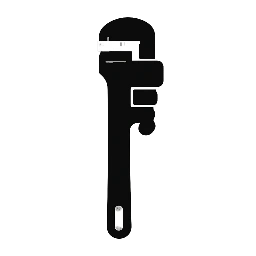In the competitive world of hospitality, every detail matters. From the crisp linens to the welcoming lobby, the goal is to provide a memorable, comfortable, and safe experience for guests. But what about the water flowing from the taps, filling the coffee machines, and powering the laundry? This unseen element is often overlooked, yet it is one of the most critical aspects of a hotel’s operation. A high-quality water purification system for hotels is not just a luxury; it’s a fundamental investment that impacts everything from guest satisfaction and operational efficiency to a hotel’s bottom line.
Beyond the Glass: Elevating Guest Experience
Think about it: the water a guest uses is everywhere. It’s in the shower, the ice machine, the coffee maker, and even the pool. When a guest turns on the faucet, a quality water filtration system ensures that the water is free from unpleasant tastes, odors, and contaminants. This attention to detail speaks volumes about a commitment to guest well-being. Providing purified, safe drinking water on-demand also eliminates the need for single-use plastic bottles, aligning with a growing demand for sustainable practices and enhancing a hotel’s reputation.
A reliable water purification system for hotels also tackles common issues like hard water. Hard water, rich in minerals like calcium and magnesium, can leave unsightly spots on glassware and fixtures, and can make towels feel rough and scratchy. By implementing a commercial water softener, a hotel can ensure that laundry is softer and brighter, and glassware sparkles without a trace of film. This level of quality directly translates to a superior guest experience and positive reviews.
Streamlining Operations and Reducing Costs
The benefits of a comprehensive water treatment system extend far beyond the guest room. The presence of impurities can wreak havoc on a hotel’s infrastructure. Limescale buildup from hard water can clog pipes, damage water heaters, and shorten the lifespan of expensive appliances like dishwashers, ice makers, and boilers. This leads to frequent maintenance, costly repairs, and potential downtime—all of which interrupt service and increase operating costs.
An industrial water purification system acts as a shield for your equipment. By removing minerals and contaminants at the source, it prevents scale formation, ensures optimal performance, and drastically reduces maintenance requirements. This not only extends the life of your equipment but also improves efficiency. For example, a water softener can increase the efficiency of a water heater by up to 30%, leading to significant energy savings. The benefits of a commercial water filter are evident in reduced soap and detergent usage in laundry and housekeeping, as well as less time spent scrubbing away mineral deposits.
Troubleshooting Common Challenges
Even the most advanced systems can encounter issues. Understanding how to troubleshoot common problems is key to maintaining a consistent, high-quality water supply.
- Low Water Flow or Pressure: This is often the first sign of a problem. The most common culprit is a clogged filter or membrane. Just like a car’s oil filter, a water filter needs regular replacement to function properly. Mineral buildup can also cause obstructions in pipes and valves. Regular inspections and adherence to the manufacturer’s maintenance schedule are crucial.
- Unusual Taste or Odor: If the purified water suddenly tastes or smells strange, it could be a sign that a filter has reached the end of its life and is no longer effectively removing impurities. It could also indicate bacterial contamination or issues with a specific stage of the water treatment process. A simple solution is to replace the filter cartridges. If the problem persists, a professional water quality analysis might be necessary to pinpoint the exact issue.
- Leaks: Leaks can be a result of damaged seals, worn-out gaskets, or loose connections. Inspect the entire system, especially around fittings and joints, to identify the source. Tightening connections or replacing a simple seal can often resolve the issue.
Implementing a robust maintenance plan is the most effective way to prevent these issues. Regular monitoring of water quality, system pressure, and filter life ensures that your investment continues to pay dividends.
Ultimately, a water purification system for hotels is a strategic asset. It’s a testament to a commitment to quality, sustainability, and operational excellence. From providing guests with a truly refreshing experience to protecting a hotel’s valuable infrastructure, clean water is the silent foundation of a successful hospitality business.


Leave a Reply